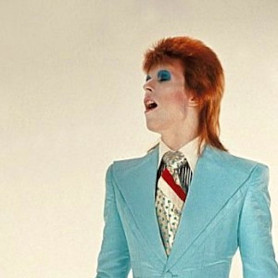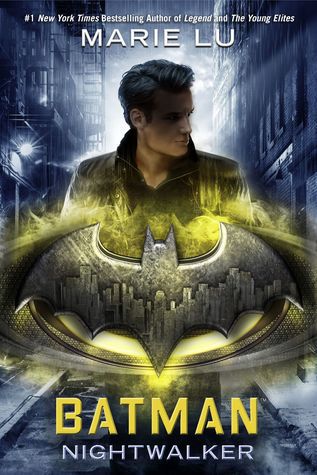He’s done it. After David had signed up with RCA records for a three album deal on the 9th of September 1971, Bowie immediately went hard at work to produce his 4th studio album. And oh my goodness, what a release this was. We’ve got 3 major hits on this album, that began to get David some real fame and attention. Bowie recalls after the release of this album, on the reception both him and the album received.
“Hunky Dory gave me a fabulous groundswell. I guess it provided me, for the first time in my life, with an actual audience – I mean, people actually coming up to me and saying, ‘Good album, good songs.’ That hadn’t happened to me before. It was like, ‘Ah, I’m getting it, I’m finding my feet. I’m starting to communicate what I want to do. Now: what is it I want to do?’ There was always a double whammy there.” – David Bowie
David was causing a major buzz in the media world around about the time of Hunky Dory’s release. Despite being a married man, David announced in an issue of a Melody Maker (A big music magazine at the time) that he was gay. You’d think this was set off some alarms for Angie Bowie, but she was completely fine with it. The two shared an open marriage, and during the production of Hunky Dory, had their first child. An interesting point to well, point out, is that Trevor Bolder would become the bass player for Bowie’s band. Now all of the core members of Bowie’s band are finally formed together, and would later become “The Spiders From Mars” (Ziggy’s backup band). So now that all of the key components are together, the stars are properly aligned, and everything is falling so snugly into place, How does Hunky Dory stack up? let’s find out.
The hard rock sound of “The Man Who Sold The World” somewhat takes a back seat here. Rather instead,the album covers a kaleidoscopic and colourful array of pop genres to a great success, tied together by Bowie’s now well-defined cinematic, theatrical and overall glamorous approach to music and songwriting. A few songs off the album retain a strong folk sound through songs like “Song for Bob Dylan” and “The Belway Brothers”. Despite a previous album being full of songs in the same sounding caliber, the strong folk tunes of the album manage to diversify themselves from anything else Bowie produced at the time. “Song for Bob Dylan” is an excellent piece of work, Ronson’s phenomenal guitar work is on full display once again. This, combined with Bolder’s simple yet effective baseline, as well as Bowie’s imitation of Dylan’s nasal sounding voice around 1965 creates an oddly loving tribute. In a Melody Maker interview in 1976, David speaks on his true intentions on writing the song.
“There’s even a song – Song for Bob Dylan – that laid out what I wanted to do in rock. It was at that period that I said, ‘okay (Dylan) if you don’t want to do it, I will.’ I saw that leadership void. Even though the song isn’t one of the most important on the album, it represented for me what the album was all about. If there wasn’t someone who was going to use rock ‘n’ roll, then I’d do it” – David Bowie
This is an aspect of Bowie that I absolutely love, laid out in a single quote. Once he sets out to do something, he doesn’t stop until he’s perfected it, and practically become a pioneering prince in the field. And he really did fill up that leadership position quite well.
 The music video for the song. With the ice blue suit and the striking eye shadow, he looks incredible.
The music video for the song. With the ice blue suit and the striking eye shadow, he looks incredible.
Other than Trevor Bolder, one musician must be highly credited to the success of Hunky Dory, and that is Rick Wakeman on Piano. He dominates the album with a cabaret type piano sound (Used well this time, mind you.) to help assist some of the best songs of the album. The first song where Wakeman’s contribution immediately jumps to mind is the song “Life on Mars?” which arguably one of Bowie’s finest songs in his entire discography. This song, simply put, is magical. It’s such a passion filled and soul wrenching piece of music, with how Wakeman’s piano soars gracefully throughout, accompanied beautifully by Ronson’s string arrangements of violins, as well as some wailing guitar riffs for a more contemporary sound. Bowie’s lyrics are nothing short of poetry: Incomprehensible in its weaving of its words, yet so enthralling and touching in their delivery. Anyone is able to bring their own personal meaning out of these words.They resonate so clearly throughout the human mind, that they are able to carry the listener to an entirely different space in time. This is something so basic that all songs should strive to achieve. The whole sound of the song transcends common conceptions of music. This peice is art, like staring at an Mc Esher or Salvador Dali painting: A beautifully composed collection of confusing sights that transcened art (Or music as a whole) Truly, a fantastic track. (Sorry if that was overly pretentious, but god damn do I love that song. )
“Changes” was a big hit for the album, along with the aforemetioned “Life on Mars?” and the lesser known of the three, “Oh You Pretty Things.” Changes is well deserved as being the big hit of the album, becoming the Pseudo Theme song for Bowie throughout his career to reflect how he often re-adapated his appearnce and sound. The lyrics ultimately reflect Bowie at this point in his career: Going through massive changes in appearnce, and attempting to distance himsef from the standard Rock N’ Roll crowd. The strong violins and Piano appear here as well, but for a more upbeat outing, and Bolder’s bass accompaying for a subtle addition for a beefier, more hunky sound (A hunky dory sound? eh? eeh???) . However the star of the show here, for me anyway, is that swanky saxophone that plays, that just sounds so funky, and out there from anything else at the time. Pretty good for a song that was originally intended to be a throwaway. “Oh you Pretty Things” Is a personal favourite of mine, with Wakeman’s Cabaret stylings of Piano in full force here, complimenting Bowie’s lyrics well, providing an anthem for those experimeting with their appearances and sexualities, even implying that the next generation of teens and young adults are superior to previous generations. (Plus, I just really love the line “The Earth is a Bitch)
 D’awww
D’awww
“Kooks” is a great little song that Bowie wrote specifically for his son, Zowie Bowie (Great name huh?). It’s one of the more jovial sounding songs on the album, and a little heartwarming when paired with Bowie’s very innocent and quite paternal lyrics. The Piano ressembles something of Bowie’s earlier works, and paired up with a soft acoustic guitair and an oddly comforting bass lines, creates something very sweet to listen to. In stark contrast we have “Queen Bitch” probably the hardest rock song on the album, as well as a subtle nod to Lou Reed. Reed was a big Inspritation to Bowie, due to his songwriting on drug use and genderbending during the 70’s. The song is defintely a precursor to the Ziggy Stardust era, With Ronson’s unrelenting riff taking centre stage, accompanied by some melodic bass work from Bolder, and a sharp drum pattern. Bowie’s voice however, is quite understated in this song, being done to most likely fit into the hard rock sound the song was going for.
Overall, Hunky Dory is a great album. The wide array of genre that is covered here is done with such care and passion. The hits are absoloute gems and Bowie essentials, and even some of the lesser known tracks on the albums still qaulify as good songs. This was Bowie’s first sucessful jump into the public eye, and it’s easy to understand, it’s a dang good album. I would give it a listen as soon as you could.
8/10 Times the Earth is a Bitch Advertisements Share this:




